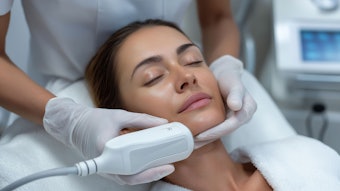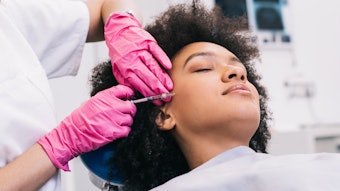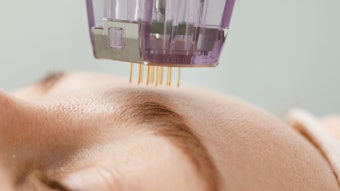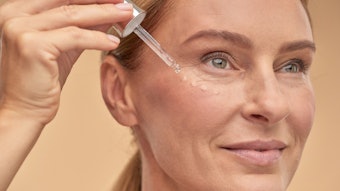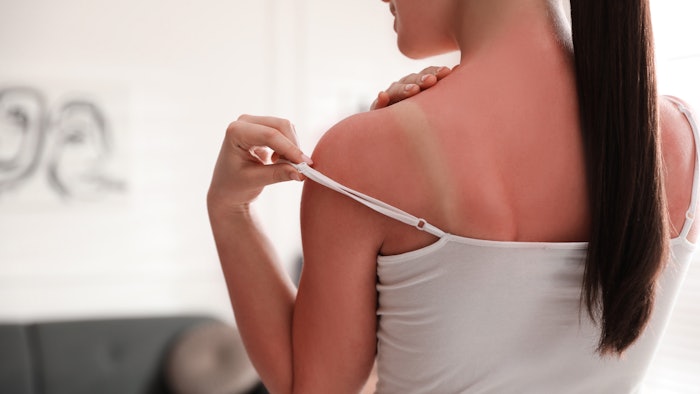
An American Academy of Dermatology (AAD) survey of more than 1,000 U.S. adults, revealed that members of Gen Z, ages 18-25, are unaware of the risks associated with overexposure to the sun, and many believe tanning myths.
In recognition of May's Skin Cancer Awareness Month, the AAD encourages this age group, along with all ages to practice safe sun to protect themselves form the sun's harmful rays and reduce their risks of developing skin cancer. Skin cancer is one of the most preventable types of cancer, yet a recent survey of more than 1,000 U.S. adults found that 61% of Americans are not concerned about developing skin cancer, even though 67% of respondents have characteristics that put them at risk.
"I'm very surprised to see that so many people are not concerned about developing skin cancer, which is the most common type of cancer in the United States. It is estimated that one in five Americans will develop skin cancer in their lifetime," said board-certified dermatologist, Terrence A. Cronin Jr., MD, FAAD, president of the AAD. "Everyone is at risk for skin cancer, and you increase that risk if you do not protect yourself from the sun when you are outside."
The survey found that 71% of Gen Z adults are unfamiliar with the risks associated with sunburn, with 40% being unaware of tanning risks and 59% believing tanning myths, such as tanning is healthy, and a base tan will prevent sunburn. Tanning is a risk factor for skin cancer, but 20% of Gen Z adults said that getting a tan is more important to them than preventing skin cancer. 30% said that it is worth looking great now, even if it means looking worse later in life.
Related: DermTech's Survey Data Reveals 75% of Consumers Have Not Had a Full Skin Exam Within Past 12 Months
AAD's study revealed that Gen Z is more likely to be at risk, and to be unaware of that fact. 71% were also not aware of the risks associated with sunburn. 37% reported being sunburned in 2022, and 41% of those sunburned reported a sunburn severe enough that their clothes were uncomfortable.
While many are not concerned about skin cancer, they are concerned about sunburn and premature aging. In fact, 48% said they are more worried about avoiding sunburn than they are about preventing skin cancer. Additionally, 29% are more worried about avoiding premature wrinkles than they are about preventing skin cancer.
"While it's great to see that people are concerned about sunburn and premature aging, they should be more concerned about skin cancer, as it can disfigure you and even cause death if it's not diagnosed early when it's most treatable," said Dr. Cronin. "By using sun protection when you are going to be outside, you can reduce your risk of all three: skin cancer, sunburn, and premature aging."
To protect yourself from the sun and reduce your risk of skin cancer, the AAD and Dr. Holman recommend that people:
- Seek shade. Seek shade when appropriate, remembering that the sun's rays are the strongest between 10 a.m. and 2 p.m. You can also look at your shadow. Any time your shadow appears shorter than you, seek shade.
- Wear sun-protective clothing. Wear a lightweight and long-sleeved shirt, pants, a wide-brimmed hat, and sunglasses with UV protection, when possible. For more effective protection, select clothing with an ultraviolet protection factor (UPF) number on the label.
- Apply sunscreen. Apply a broad-spectrum, water-resistant sunscreen with an SPF of 30 or higher to all skin not covered by clothing. Remember to reapply every two hours or after swimming or sweating.
"It's important for people to know that sun damage is cumulative, meaning that it adds up over time," said Board-certified dermatologist, Jennifer Holman MD, FAAD. "What you do now makes a difference with your skin cancer risk down the road. If you notice any new spots on your skin, any spots that look different from the others, or anything changing, itching or bleeding, see a board-certified dermatologist."






